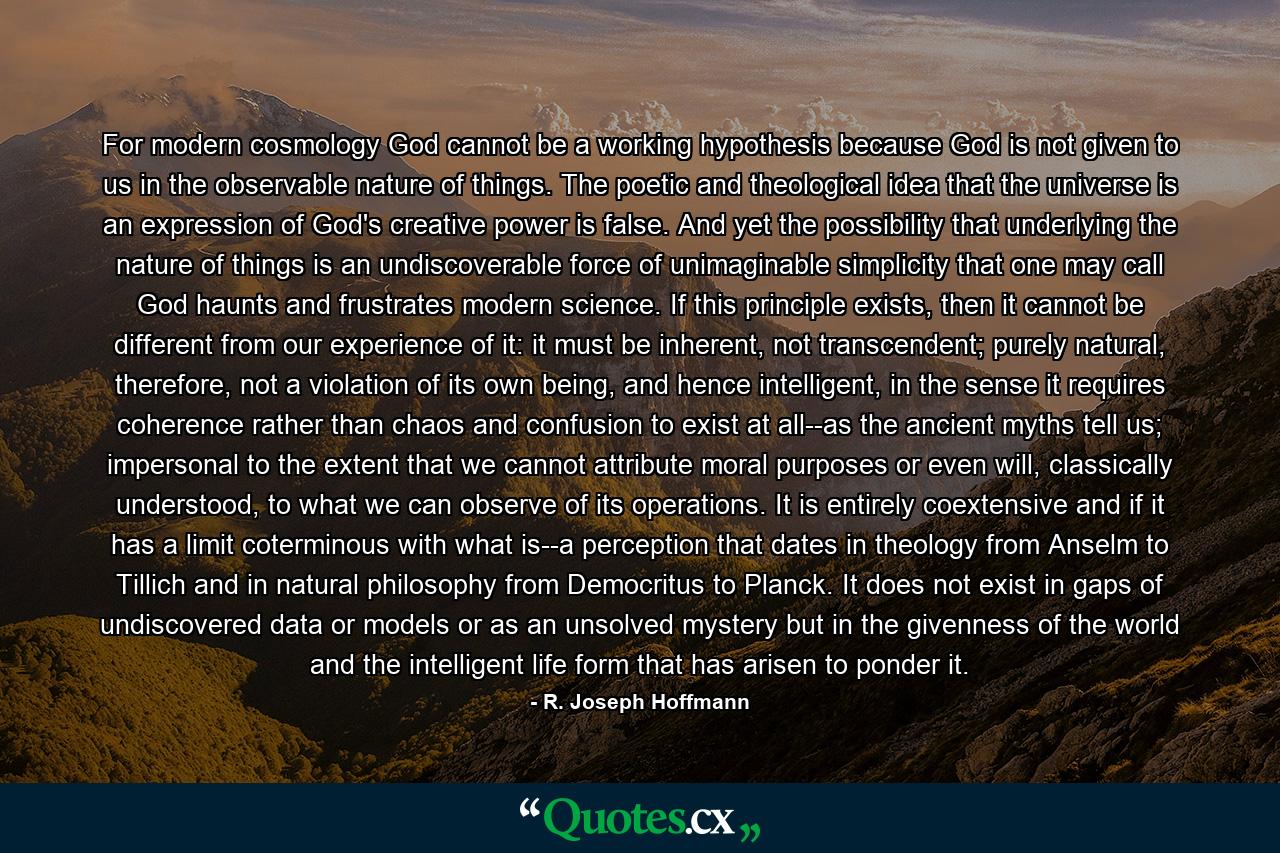For modern cosmology God cannot be a working hypothesis because God is not given to us in the observable nature of things. The poetic and theological idea that the universe is an expression of God’s creative power is false. And yet the possibility that underlying the nature of things is an undiscoverable force of unimaginable simplicity that one may call God haunts and frustrates modern science. If this principle exists, then it cannot be different from our experience of it: it must be inherent, not transcendent; purely natural, therefore, not a violation of its own being, and hence intelligent, in the sense it requires coherence rather than chaos and confusion to exist at all–as the ancient myths tell us; impersonal to the extent that we cannot attribute moral purposes or even will, classically understood, to what we can observe of its operations. It is entirely coextensive and if it has a limit coterminous with what is–a perception that dates in theology from Anselm to Tillich and in natural philosophy from Democritus to Planck. It does not exist in gaps of undiscovered data or models or as an unsolved mystery but in the givenness of the world and the intelligent life form that has arisen to ponder it.
